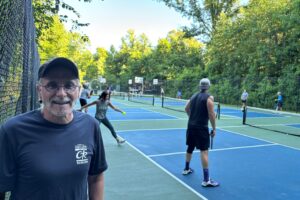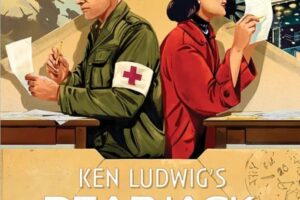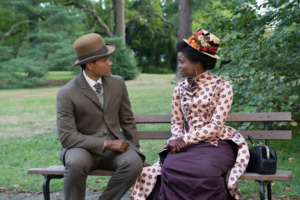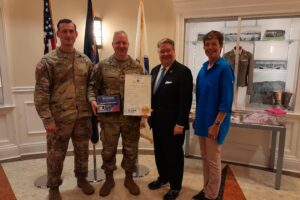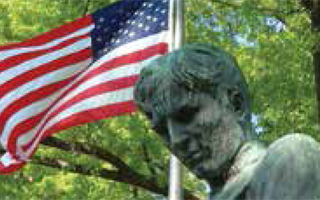 May is not just a time to celebrate Memorial Day in general, but it is also the anniversary of V-E Day, the celebration of the Allied victory that ended the fighting in Europe during World War II. This year marks 70 years since the end of that war, and it gets one thinking a bit about that “Greatest Generation” as it has come to be called. Since WW II ended 70 years ago, the vast majority of those who fought in it are gone. As of 2013 there were over 19 million veterans in the United States.
May is not just a time to celebrate Memorial Day in general, but it is also the anniversary of V-E Day, the celebration of the Allied victory that ended the fighting in Europe during World War II. This year marks 70 years since the end of that war, and it gets one thinking a bit about that “Greatest Generation” as it has come to be called. Since WW II ended 70 years ago, the vast majority of those who fought in it are gone. As of 2013 there were over 19 million veterans in the United States.
Just over one million were WW II veterans. If we assume that those who served in WW II were approximately 20 years old at the end of the war, that would make most of the veterans about 90 now. Human life expectancy is only so long, and just like in every other point in our history, we will lose those who have a memory of that time. We live in a very quickly changing world thanks to technology. Young people today feel disconnected from even recent history and rarely understand the context in which they live. They may learn about history in school, but the personal connection is often not there. On top of that, the climate of society was such that if Grandpa stormed the beach at Normandy the younger generation may not have heard about it; many veterans of that era took their experiences to their graves, not talking about the atrocities they saw or the pain they suffered. Unlike those coming back from Vietnam, who pulled the curtain away and demanded that civilians understand the casualties of war (not to mention that that was the first era with the technology to televise what was going on), the older generation wanted to put the war behind them. When I was little my grandparents owned a bungalow colony in the Catskills. For those who don’t know, this was a popular summer destination for Orthodox Jews living in the boroughs of New York City. It still is, although not to the extent it was, with more Orthodox women pursuing careers, expansion of summer camps, and other vacation options. But for many years women with large broods spent entire summers in small bungalows or cabins while their husbands worked in the City and came up for the weekends, praying until late into the evening on Fridays, and celebrating Shabbat with their families. Many of the people who summered at our colony were Holocaust survivors, including a large percentage who had been in camps and suffered terrible horrors — we could see the numbers on their arms when we went swimming. Again, even those who were small children at that time are elderly now, some with failing memories, many who don’t discuss what they went through so as not to relive the pain. Without some of those stories, not only does the understanding of that period of history suffer, but the understanding of the Jewish experience is at least partially lost. With my Italian and Greek heritage, I certainly would not have had that kind of exposure to that particular culture or understand the significance of the history had my grandparents not chosen to be one of the few gentile families who ran one of these colonies. Above my computer is my father’s portrait from the Army Reserves. Young, clean-cut, and eager, he smiles in his uniform. Knowing my father as I did—squeamish, clumsy with household tools, sickened by the sight of blood, and the kind of man who changed his spark plugs while wearing cuff links, I am grateful not only for him, but for our country, that his unit was never activated. There was apparently some concern during the Cuban Missile Crisis that he could get called up, but that never happened. He served out his time in the Reserves heading down to Fort Bragg for the required weekends where the war games were suspended when the ice cream man came through and brought them treats for their suffering. I did once hear that he woke to find a snake in his boot, and there was some story about not getting gravy on his turkey in the mess hall, but overall my father’s quasi-military experience was not much more than a Boy Scout trip in the country. I’ve known veterans, however, who saw action. The father of a high school boyfriend whose flashbacks caused him to try to put his infant son into boiling water. A young man whose leg was lost in a helicopter crash. A good childhood friend who saw the military as his only option as he was not a good student and didn’t have a lot of prospects, but found his niche in the Navy and made a career of it. One of my colleagues worked at the VA Hospital for nearly 40 years, running groups, seeing veterans from all eras, helping them live with their experiences and share their stories. It takes a special kind of person to survive wartime. That kind of drive is not in my genetics (see above gravy comment) and I’m grateful for those who have risen to the occasion and served when required—especially today in an all-volunteer force. Every May we remember those who did not survive. “All gave some, some gave all” is the message we often read on memorials. There were those who stormed the beach and fought oppression so that those European Jews could end up summering in the Catskills. Historians say we may never know the true number of Allied soldiers who died on D-Day, and it is not unusual, even today, for remains to be found that had previously not been accounted for. In Billy Joel’s haunting “Goodnight Saigon” he sings, “Remember Baker, he gave his childhood on every acre.” We lost 58,000 soldiers in Vietnam, and a visit to the memorial wall makes it painfully clear how many names that actually is. And of course, in our current, ongoing wars in the Persian Gulf, we lose soldiers all the time as they fulfill their commitment to fight a war that many of us don’t understand. Memorial Day is more than just a day to grill burgers or buy a new mattress on sale. It’s more than a day to celebrate the onset of warm weather and long weekends. It’s a time to say thank you to those who “gave all,” from the Revolution onwards, both those who chose to take that risk and those that were drafted into service. It’s a time to remember families who lost their youngest on foreign battlefields, and to imagine what that must be like. It’s a time to thank a veteran for his or her service, for risking it all, whatever the reason, which varies with the individual. Whether it be freedom from England, reuniting the Union and freeing the slaves, supporting our allies overseas, or protecting our borders, there are people, often barely out of high school, to be acknowledged for being willing to give their lives. Please tip your hat this May to not only the platinum anniversary of the Allied victory in Europe, but also to all who served and never made it home. All gave some, some gave all.
[blockquote class=blue]Barbara Kapetanakes, Psy.D. practices child, adult, and family psychotherapy in Sleepy Hollow. [/blockquote]



